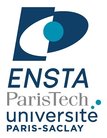|
Les données sont abondantes : demandes en énergie, demandes en mobilité et transport, indicateurs environnementaux, conditions météorologiques, communications dans les réseaux télécom en sont quelques exemples.
Comment les décideurs peuvent-ils utiliser de telles données quand ils doivent évaluer des stratégies d’investissement, comme l’extension de réseaux ou le financement de nouvelles technologies ? Comment les ingénieurs peuvent-ils profiter des informations disponibles en gestion opérationnelle, comme le pilotage d’un réseau de transport ou d’un réseau électrique intelligent (smart grid) ? Comment prendre en compte le risque ?
Voici le type de questions qui motivent le cours Interface « Données, Incertitudes et Optimisation ».
Data is abundant: energy demand, transport and mobility demand, environmental indicators, meteorological conditions are a few examples where data is available. How can decision-makers incorporate such data when they have to address investment strategies (network extension, new technologies)? How can engineers manage operations — transport network control, smart grid regulation — taking advantage of the available information? How can risk be handled? These are the type of questions addressed in the Interface Course 2017 Data, Uncertainty and Optimization.
The 3-day school alternates courses, case studies and computer sessions. It is aimed at an industrial audience, but can interest academics. The academic organizers are ENSTA ParisTech and École des Ponts ParisTech.
Keywords: scenario trees, stochastic optimization, risk International lecturer
In addition to the lectures and computer sessions provided by the French researchers above, we invite the following international speaker to give lectures
COURSE PROGRAM
- Tuesday 28 November (8h00-12h00)
Two-Stage Stochastic Programming
Opening (8h00-8h15)
Roundtable: presentation of the lecturers and of the participants.
Lecture (8h15-10h00)
Michel De Lara
In a deterministic optimization problem, the values of all parameters are supposed known. What happens when this is no longer the case? And when some values are revealed during the stages of decision? We present stochastic optimization as a frame to formulate decision problems under uncertainty. After the analysis of two toy problems, we present two-stage stochastic programming (and the resolution on scenario tree or by scenarios).
An alternative approach to stochastic optimization, for problems with uncertain data, is robust optimization. Where stochastic optimization relies on the knowledge of a probability distribution for the uncertainties, robust optimization only requires to be given an uncertainty set. Stochastic ambiguity lies in-between stochastic and robust optimization: there is more than one probability distribution that possibly drives the uncertainties, and the decision-maker forms expectations before taking the worst case with respect the family of probabilities. More generally, risk measures offer mathematical ways of expressing a large spectrum of risk attitudes. In two-stage stochastic programming, we show how risk can be handled thanks to the Tail Value-at-Risk metrics.
Break (10h00-10h30)
Computer session (10h30-11h45)
Pierre Carpentier, Jean-Philippe Chancelier, Michel De Lara, Vincent Leclère
Introduction to the scientific software Scicoslab
The newsvendor problem
Questions and answers session (11h45-12h00)
- Tuesday 28 November (14h00-18h00)
Presentation of case studies
Pierre Carpentier, Jean-Philippe Chancelier, Michel De Lara, Vincent Leclère
We present three case studies making use of stochastic optimization.
1. Work done by Francis Sourd and Ariel Waserhole (Sun’R)
Renewable Energy Aggregator: How to Handle Market Risk
SLIDES
2. Work done by Tristan Rigaut (Efficacity and Cermics-École des Ponts ParisTech)
Optimization for Energy Efficiency and Climate Control of a Subway Station Microgrid
SLIDES
3. Work done by François Pacaud (Efficacity and Cermics-École des Ponts ParisTech)
Optimal Control of a Domestic Microgrid with Battery and Renewable Energy
SLIDES
Break (15h30-16h00)
Questions and answers session (16h00-18h00)
The industry participants will present problems that they currently address. The teaching staff will analyze and discuss possible methods to tackle such practical issues.
|
- Wednesday 29 November (8h00-12h00)
Scenario Generation and Progressive Hedging (Lecture)
Lecture (8h00-10h00). David Woodruff
Stochastic programming seeks good decisions to be implemented « now » by taking into account uncertainty about future data as well as the possibility for decisions that are made in a few time stages in the future. This requires a model of the decision process as well as a characterization of the uncertainty concerning future data, which we do using scenarios. Scenarios can be defined as a set of data for the optimization problem, where each member of the set is a full specification of the data with an attached probability. For multi-stage problems, these data are typically organized into a tree. When planning and scheduling power systems, there are usually forecasts available that can be used to inform the scenario creation process. We will describe methods that we have developed that use historic data about forecasts along with observed data to create high quality scenarios.
Break (10h00-10h30)
Lecture (10h30-11h45). David Woodruff
Once one has the scenarios, Stochastic programming proposes to build a scenario tree of uncertainties, and to attach one decision variable per node, hence leading to an equivalent deterministic formulation. However, the size of the resulting problem can be overwhelming. We advocate a method of solving the problem using methods that are in a family known as Progressive Hedging. The problem is decomposed by scenario and iteratively solved so that only one decision vector corresponds to « now ».
Questions and answers session (11h45-12h00)
- Wednesday 29 November (14h-18h)
Scenario Generation and Progressive Hedging (Computer Session)
Computer session (14h00-18h00)
Teaching staff
We have open-source software that enables experimentation with this method. We will propose a computer session on the unit commitment problem in energy.
- Thursday 30 November (8h-12h)
Multi-Stage Stochastic Dynamic Programming
Lecture (8h00-10h00)
When moving from two-stage stochastic programs to multi-stage, the scenario tree grows exponentially and so does the size of the optimization problem. By contrast, the optimal control approach looks at the problem from a Markovian view where uncertainties are stagewise independent, making it possible to compress past information in a reduced state. This opens the way for the dynamic programming resolution method that we present. We illustrate the approach on stock management problems.
Break (10h00-10h30)
Computer session (10h30-11h45)
Pierre Carpentier, Jean-Philippe Chancelier, Michel De Lara, Vincent Leclère
Code the dynamic programming algorithm.
A Numerical Toy Stochastic Control Problem Solved by Dynamic Programming
Questions and answers session (11h45-12h00)
- Thursday 30 November (14h-18h).
Workshop on Industry Case Studies
Questions and answers session (14h00-16h30)The industry participants will present problems that they currently address. The teaching staff will analyze and discuss possible methods to tackle such practical issues.
Break (16h30-17h00)
Assessment session (17h00-18h00)
The participants will assess the course and give feedback.
|






